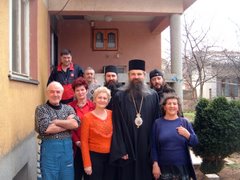Serbia Ending Its Cooperation With Hague Tribunal
Belgrade, July 20, 2006 – Serbian Minister of Public Administration and Local Self-Government Zoran Loncar said that the government adopted in its session today basic elements of the Action Plan to end cooperation with the Hague tribunal, which contains a series of measures that should result in locating and transferring Hague fugitives, including the most wanted Ratko Mladic.
In a press conference after the government session Loncar said that president of the Serbian National Council for Cooperation with the Hague Tribunal Rasim Ljajic and war crimes prosecutor Vladimir Vukcevic were appointed as team coordinators for implementation of this plan and noted that after adopting basic elements of the Action Plan, what follows now is the implementation phase. The Action Plan, which is the state’s priority, did not include deadlines, Loncar said and noted that this plan is already being implemented and will be implemented until its purpose is satisfied. The Serbian government established a Bill amending the Law on Ministries by introducing the Ministry of Foreign Affairs and the Ministry of Defence, which previously functioned at the level of Serbia-Montenegro’s state union, Loncar said. After Serbian parliament adopts this law, conditions will be made for the Serbian government to get two more ministers – for defence and foreign affairs, said Loncar and added that the government did not discuss personnel solutions. Loncar also said that the government and Serbia’s team for political negotiations on the future status of Kosovo-Metohija want direct talks with the Albanian party and that these negotiations should result in a compromise. The Minister said that forthcoming Vienna talks scheduled for July 25 should address the issue of Kosovo-Metohija’s future status and that a real measure of autonomy should be found for Kosovo-Metohija as part of Serbia. Loncar said that UN Secretary General's Special Envoy Martti Ahtisaari is now especially responsible for preparing the forthcoming talks. The talks must be in accordance with international law, democratic values and European standards, which means highest degree of autonomy for Kosovo-Metohija within Serbia’s borders, said Loncar. Loncar confirmed that Belgrade will participate in all talks in a most constructive way and added that the question as to who will represent our side in the first round of direct talks is a matter of agreement within the Serbian negotiating team.
Serbian Minister of Agriculture, Forestry and Water Management Goran Zivkov said that the government adopted a Bill on agriculture and sent it to the parliamentary procedure. He explained that for the first time Serbia will get an agriculture bill that will institutionally regulate the policy and goals in that area, measures of agricultural policy, structural support, introduction of agriculture producer registers, formation and introduction of an agriculture council and agriculture chamber as well as an agriculture development strategy for the next ten years. Zivkov also said that €70 million will be set aside as part of the National Investment Plan for agriculture.
Serbian Minister of Energy and Mining Radomir Naumov stated that the government today adopted a proposal of the sectoral investment plan for energy worth €53 million, which will be spent on gasification, subsidising loans and development of solar energy as well as research and use of thermal waters. Naumov stressed that a final project of NIS privatisation was adopted in a move to create a more competitive oil market as well as to find good investors and complete the privatisation process in due time. He announced that the tender for selling 49% of NIS to a strategic partner at the proposal of privatisation advisor, Merrill Lynch-Raiffeisen Investment, will be announced in September or October.The Minister noted that NIS privatisation will develop in two phases. In the first phase, a strategic partner and the government would hold 37.5% shares each while the remaining 25% will be distributed through issuance of shares, whereas the second phase would include recapitalisation worth between €250 million and €300 million as well as sale of shares up to the amount of 49% to the strategic partner, Naumov explained.

















